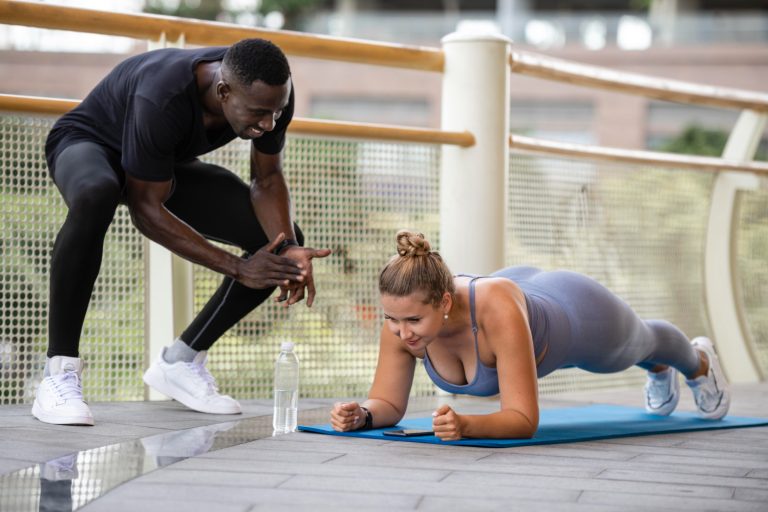
<a href="https://pixabay.com/users/composita/">composita</a> / Pixabay
With each change of the season, cross-training becomes more popular as changes in the weather force outdoor athletes indoors (and vice versa). Whether you are cycling to maintain endurance, attending a spin class to boost your sprinting skills, or engaging in slower-paced exercises like yoga and Pilates, incorporating cross-training into your exercise regimen can help keep you at the top of your game year-round. Below, former NFL player Arthur Lynch shares a few of the unique benefits cross-training can provide.
Boosting Cardio Endurance
As you practice and perfect your sport of choice, you’re able to do it more easily. This is the goal, right?
Yes—but it also means that you do not work quite as hard when doing your typical exercises.
“Training with a new exercise can stimulate your heart, lungs, and muscle groups in ways they’re not used to,” Lynch explains. Take running and swimming as an example. Both sports provide a variety of cardiovascular benefits, but in different ways—swimmers must use their arm and back muscles and methodical, timed breathing to propel themselves through the water, while runners primarily rely on their quad and glute muscles to move them forward.
An elite runner who never swims may struggle to keep up with even average swimmers, while an elite swimmer who never runs or jogs could have the same amount of trouble keeping up with a casual 5K runner—even if the swimmer’s cardiovascular fitness is far better than the casual athlete’s
By taking advantage of both exercise methods, athletes can work different parts of their body, expanding their ability to adapt to varying workout conditions.
Reducing the Risk of Injury
Overuse injuries are what “rest days” were designed to prevent. But even with a day or two off in between your workouts, continually hitting the same few muscle groups with a discrete set of exercises can strain your muscles, damage your joints, and cause other overuse injuries. Just look at the elevated rate of shin splints for marathon runners or the number of rotator cuff injuries for tennis and baseball players.
Cross-training can help you maintain your heart and lung function and work on endurance while giving some of your more commonly used muscle groups a break. This allows you to both train and recover at the same time. Over time, not only will this help make you a more well-rounded athlete, but it can also reduce your risk of chronic injury.
Keeping You Alert
“It’s easy to get burned out when you’re doing the same exercises every day,” explains Lynch. “Cross-training can help refresh your exercise routines and keep you mentally engaged by giving you new activities to learn.” After you’ve returned to your primary sport, you’ll often notice a renewed focus.
Stimulating Different Muscle Groups
A final benefit of cross-training includes being able to target muscle groups that your regular exercises may not reach.
Think of your body as a partially inflated balloon. As you push down on the balloon in one spot, the air will simply redirect itself to another spot, making it larger. The same thing can happen to your muscles if you stick with the same handful of exercises for years. As some muscles become stronger, while others are rarely used, the stronger muscles may begin compensating for the weaker ones.
Not only can this set you up for overuse injuries, but it can also hamper your overall physical development. The last thing you want is to injure a well-developed muscle and only then be forced to start strengthening the neglected one. By incorporating cross-training activities into your regimen, you can gain more power in your movements, become a more well-rounded athlete, and significantly improve your overall fitness.
“Implementing cross-training can seem like a challenge,” explains Lynch, “but it doesn’t need to be.” By adding just a few different exercises or sports into your routine during your off-season, you can reduce the risk of injury, allow recovery time, keep yourself mentally engaged, and improve your cardiovascular endurance.
About Arthur Lynch
Arthur Lynch has a multifaceted background; he has played in the NFL and served in the United States Army. Mr. Lynch graduated from the University of Georgia in 2013 with a BA in History. He minored in political science and held honors such as the Dean’s List and Academic All-SEC.
He continued his studies at the University of Pennsylvania’s Wharton School of Business, attending the NFL Business Management & Entrepreneurial Program at Aresty Institute of Executive Education. Mr. Lynch studied finance and investment strategy and was one of only two first-year players to be accepted into the NFL BME program.





